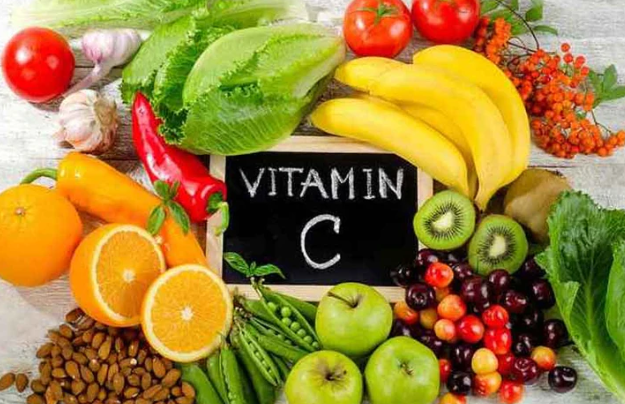
Vitamin C is a nutrient that plays an important role in maintaining a healthy body. Oranges are often the fruit that is synonymous with Vitamin C, even though there are many foods with high vitamin C.
Vitamin C generally provides benefits for healthy skin, vision, healthy joints, and more. Vitamin C is also known to support a healthy immune system.
This is one of the reasons why we are advised to more often consume foods rich in vitamin C in our diet.
Read: The Mediterranean Diet: Benefits, Recipes and More
10 foods with high vitamin C
Vitamin C or also known as ascorbic acid is a type of water-soluble vitamin that functions as an antioxidant.
What foods contain the highest vitamin C? If the answer is orange, then of course the answer is wrong.
Then, what fruit has more vitamin C than oranges?
Among them is black currant. This vegetable is one of the richest sources of vitamin C.
All kinds of berries; such as acai, strawberry, raspberry, camu camu berry; or kiwi, grapefruit, mango, pineapple, papaya, and guava are very high sources of vitamin C.
In general, getting plenty of vitamin C from food and/or supplements is thought to help support cellular health and a healthy aging process.
Vitamin C also helps form blood vessels, cartilage, muscles and collagen in bones.
Here is a list of the best vitamin C foods to eat regularly – apart from oranges – to help increase your intake:
1. Black currant

1 cup: 203 milligrams (338 percent of the RDA)
Benefits: Supports a healthy immune system, high in antioxidants and fiber , high in vitamin A, vitamin B and vitamin E.
How to consume: Use in homemade jams and jellies, add to granola or yogurt, add to salads or healthy homemade desserts.
2. Kiwi
1 cup: 164 milligrams (273 percent of the RDA)
Benefits, potassium, calcium, vitamin K and folate.
How to eat: Add to fruit salads, smoothies, healthy desserts and yogurt parfaits.
3. Green vegetables like spinach and kale
1 cup kale, raw: 80 milligrams (134 percent of the RDA)
Benefits: Loaded with antioxidants including flavonoids and polyphenols, vitamins C and A, fiber, calcium, magnesium, and more.
How to eat: Make a large salad with mixed vegetables, add a handful to smoothies, juices, stir fry or add to soups and stews.
4. Broccoli and other cruciferous vegetables

1 cup, raw: 81 milligrams (135 percent of the RDA)
Benefits: Very high in vitamins A, C, E, KB vitamins, folate, fiber and antioxidants such as lutein and sulforaphane.
How to consume: Add to stir fry, steam and serve with fish or meat, add to omelet, mix into soup.
5. Grapefruit, tangerines, and other citrus fruits
1/2 fruit: 38 milligrams (64 percent DV)
Benefits: High in vitamin C and other antioxidants, as well as folate, calcium, fiber, and more.
How to eat: Eat citrus fruits raw as a snack, add to smoothies or fresh juices, add segments to salads.
6. Peppers
1 cup bell peppers: 120 to 190 milligrams (317 percent DV)
Benefits: A great source of antioxidants including vitamins C and A, potassium, magnesium, and B vitamins.
How to eat them: Slice and add to stir-fries, salads, sandwiches, tacos, hummus and homemade sauce.
7. Berries (all kinds, including strawberries, acai, etc.)

1 cup strawberries: 89 milligrams (149 percent DV)
Benefits: Rich in antioxidants including polyphenols such as anthocyanins, vitamins C and A, fiber, manganese and vitamin K:
How to eat: Snack raw or add to yogurt, oatmeal, healthy baked goods, sweets, jams and smoothies.
8. Pineapple (plus mango, papaya, guava and other tropical fruit)
1 cup pineapple: 79 mg (131 percent DV)
Benefits: High in vitamin C, enzymes including bromelain, magnesium, B vitamins and manganese.
How to eat it: Snack raw or add to yogurt, smoothies, healthy baked goods, and desserts.
9. Dew honey
1 cup: 32 milligrams (53 percent DV)
Benefits: Low calories, high water content, and a good source of vitamin C, vitamin B6, folate and potassium.
How to eat it: Snack raw or add to fruit salads and smoothies.
10. Tomatoes
1 cup, raw: 23 milligrams (38 percent DV)
Benefits: Great source of antioxidants including lycopene, rich in vitamin C, vitamins A, B2, folate, and chromium.
How to eat it: Make tomato sauce or tomato soup, add to vegetable soups and stews, add to pizza, pasta dishes or salads.
Amount of Vitamin C Your Body Needs
How much vitamin C do you need every day? The Nutritional Adequacy Rate (RDA) guidelines for vitamin C are based on age and sex. Adult women and men need about 75 to 90 milligrams per day.
The RDA for vitamin C for different age groups is as follows:
For infants and children:
- 0–12 months: 40 to 50 mg/day
- 1–8 years: 15 to 25 mg/day
- 9–13 years: 45 mg/days
- 14–18 years: 65 to 80 mg/day
For adults:
- Men 19 years and over: 90 mg/day
- Women 19 years and over: 75 mg/day
- Pregnant women: 85 mg/day
- Lactating women: 120 mg /day
Get more vitamin C from foods in the Abisa diet by adding a few extra servings of fruits and vegetables to your diet each day.
One thing to note about foods high in vitamin C is that they may lose some of their nutrients if they are overcooked or processed for too long.
It's a good idea to eat foods high in vitamin C raw wherever possible, rather than cooked, as cooking methods such as boiling, sautéing, steaming, can cause significant loss of vitamin C and other "refined" nutrients.
Best Vitamin C Supplements
In general, the safest and best way to meet your vitamin C nutritional needs is to eat a variety of foods rich in vitamin C.
In addition to eating foods high in vitamin C, supplements can also increase your intake, for example if you are a smoker or have been smoking. told by your doctor that through supplements, you may get more benefit
As always, you should consult a healthcare professional before adopting any diet or lifestyle, including vitamin C intake.
When does a person need a vitamin C supplement supplement? Supplementation is recommended if a person cannot get enough from his own diet.
Or if they have certain lifestyle factors that may increase their needs, for example if they have difficulty absorbing nutrients from their diet.
Most supplements generally have a serving size of about 1,000 milligrams of vitamin C per capsule, although higher doses can be found in some supplements.
It's important not to exceed the safe upper limit of 2,000 milligrams a day of the supplement.
- Opt for “real food” vitamin C supplements made from real food sources, which can support absorption through optimization of various compounds.
- Purity Immune Bio C 500mg is a vitamin C product with a halal formula, Muslim-friendly and premium quality containing high levels of vitamin C in a non-acidic form to support a healthy immune system and help reduce the severity of cold and flu symptoms. Click Here.
Thats the article High Vitamin C Foods (More Than Oranges).










